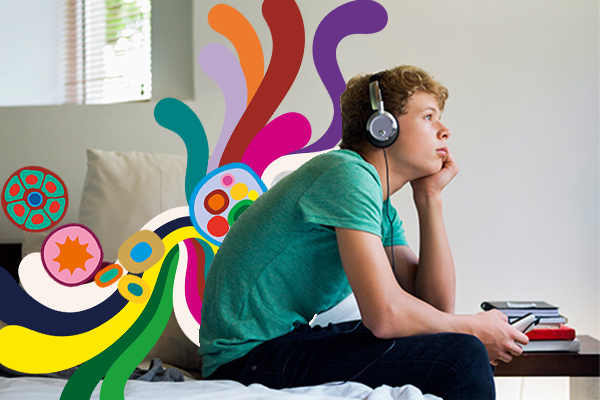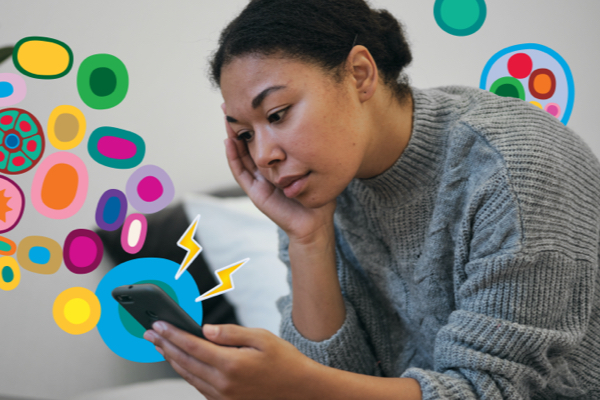How to support teenagers with depression

As teenagers navigate the journey from childhood to adulthood, it’s normal to see shifts in mood, energy and behaviour. But when these changes become persistent, overwhelming, or start to affect their everyday life, it could be a sign of something more serious.
Depression affects how a person thinks, feels and behaves. It can make everyday tasks feel overwhelming or impossible, or in extreme cases like life is not worth living. It’s important to know that depression is treatable with the right support.
Symptoms, treatments and support options for depression in teenagers are often similar to those for adults. However, the challenges that teenagers face can be quite different. Social pressures, school stress, identity struggles and changes at home or in friendships can all play a role.
Here we explore the symptoms of depression in teenagers, what might cause it, and where to find the right support.
How common is depression in teens?
Depression affects 1 in 4 young people in Australia, usually during adolescence or young adulthood. This makes young people more likely to experience depression than adults.
Regardless of the age of the person experiencing it, depression is a serious health condition, one that can be managed with the right treatment.
What causes depression in teens?
There are many things that can make someone more likely to experience depression — from genetics and brain chemistry to life events like stress or loss. Usually, it’s a combination of these factors.
Common challenges young people may face include:
friendships and wanting to fit in
bullying
changes at home, such as parents separating
changing environments, like moving house or switching schools
feeling lonely
stress from school or pressure to do well
low self-esteem or worries about body image
questions about sexuality or gender identity
feeling judged or discriminated against
romantic relationships, or feeling pressure to be in one
Sometimes, people feel depressed without knowing why. Even if there’s no clear reason, it’s important to know that your feelings are valid and deserve support.
Signs of depression in teens
While everybody experiences depression differently, some common symptoms of depression in teenagers include:
feeling sad, guilty, worthless or overwhelmed
being irritable or easily frustrated
negative thinking
withdrawing from family and friends
relying on alcohol and sedatives to cope
lack of interest in or enjoyment from usual hobbies
being sick and tired all the time
headaches and muscle pains
trouble sleeping
loss or change of appetite or weight
If you or someone you care about has had these symptoms for two weeks or more, see your doctor or a mental health professional for support.
Treatment for depression in teenagers
Treatment options for depression in teenagers are similar to those for depression in adults, and can range from lifestyle changes for mild depression to therapy and prescription medication for more severe cases. There is no one size fits all approach – your doctor will work with you to find the best course of treatment for your situation. Keep in mind that depression is unlikely to go away on its own. Seeking support is a crucial first step in recovering from depression.

Where to get help
If your life or someone else’s is in danger, call 000 immediately.
If you’re in distress and need help, call Lifeline on 13 11 14 for 24/7 crisis support.
For non-emergency support, your GP or regular health practitioner is often the best place to start. They will be able to assess your individual situation and recommend the best next steps for your recovery.
Remember that help is always available, no matter the situation.
How can we help?
I want to know how my cover supports mental health
I need help and want to talk
Related articles
Things you need to know
While we hope you find this information helpful, please note that it is general in nature. It is not health advice, and is not tailored to meet your individual health needs. You should always consult a trusted health professional before making decisions about your health care. While we have prepared the information carefully, we can’t guarantee that it is accurate, complete or up-to-date. And while we may mention goods or services provided by others, we aren’t specifically endorsing them and can’t accept responsibility for them. For these reasons we are unable to accept responsibility for any loss that may be sustained from acting on this information (subject to applicable consumer guarantees).


